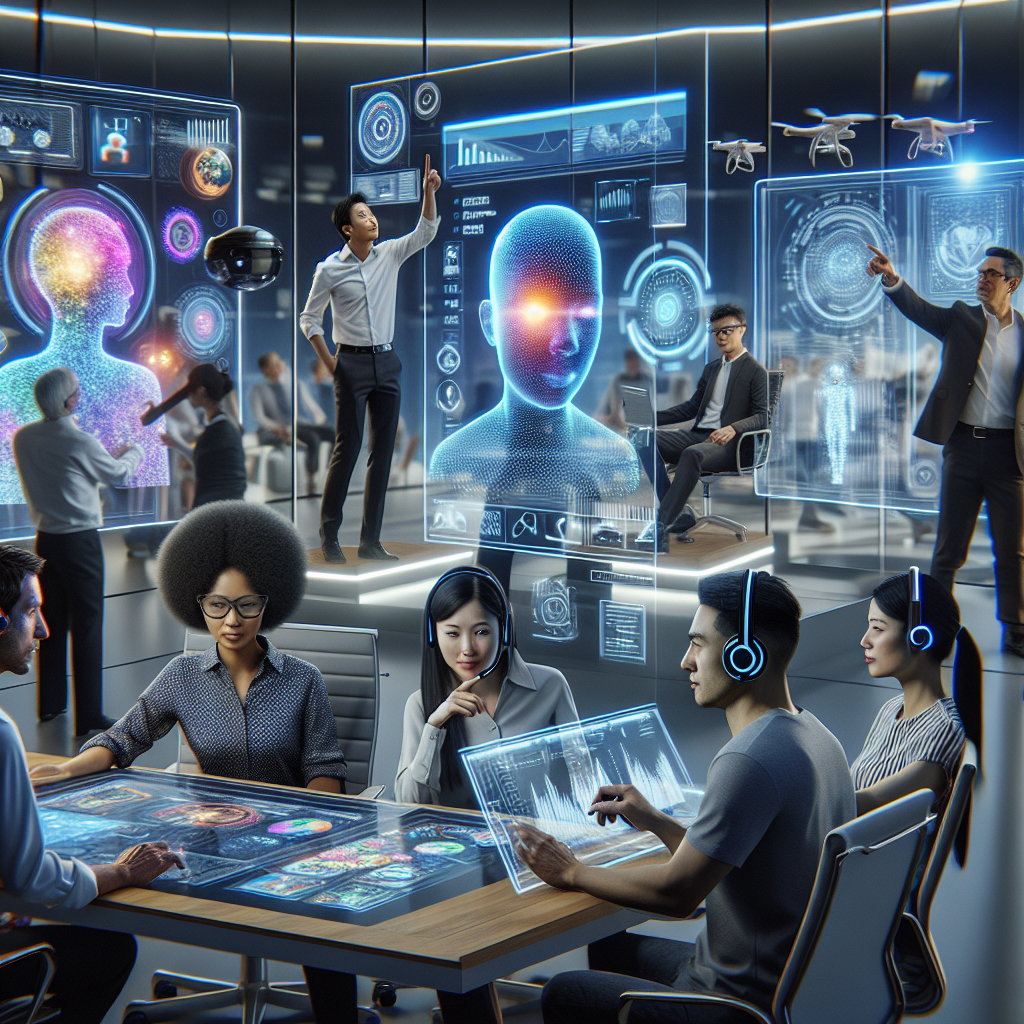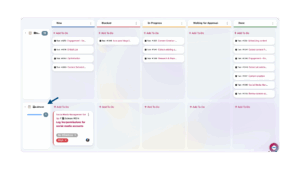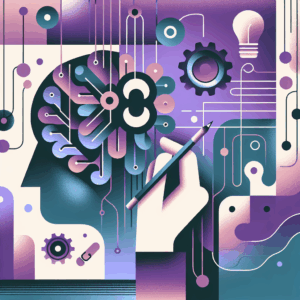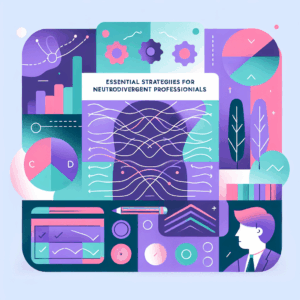The Future of Productivity: How AI Will Transform Work for Neurodivergent Individuals in the Next 5 Years
- AI is a transformative force for neurodivergent individuals, reshaping productivity in unprecedented ways.
- The economic potential of AI is vast, with projections of $22.3 trillion by 2030 and a 7% GDP increase.
- AI can provide personalized accommodations, amplify neurodivergent strengths, and shift workplace behaviors.
- Challenges include equity, access, ethical implementations, and the risk of cognitive dependence on AI.
- Actionable strategies exist for neurodivergent individuals to prepare for an AI-enhanced work environment.
The Economic Promise of AI-Powered Productivity
The numbers tell a compelling story. According to IDC, 2023, investments in AI solutions and services are projected to generate a global cumulative impact of $22.3 trillion by 2030. Goldman Sachs research suggests even more impressive figures: generative AI alone could raise global GDP by approximately 7% (nearly $7 trillion) and increase productivity growth by 1.5 percentage points over a 10-year period (Goldman Sachs, 2023).
In the shorter term, we can expect AI to boost GDP growth by around 0.4 percentage points in the late 2020s and early 2030s (Faster, Please!, 2023). McKinsey’s analysis provides additional perspective, estimating that generative AI could enable labor productivity growth of 0.1 to 0.6 percent annually through 2040, depending on adoption rates (McKinsey, 2023).
But what do these macro-level projections mean for individual workers, particularly those who are neurodivergent?
Neurodivergence Meets AI: A Powerful Combination
For neurodivergent individuals, the traditional workplace has often presented significant barriers to productivity. From sensory overload in open-plan offices to rigid workflows that don’t accommodate different cognitive styles, the conventional work environment has frequently failed to harness the unique talents of neurodivergent minds.
AI is poised to change this paradigm in several meaningful ways:
1. Personalized Accommodations at Scale
Traditional workplace accommodations have often been expensive, difficult to implement, or stigmatizing. AI promises to democratize accommodations through:
- Adaptive interfaces that automatically adjust to individual sensory sensitivities, reducing overwhelm for autistic individuals or those with sensory processing differences.
- AI assistants specifically designed to support executive functioning challenges common in ADHD, providing just-in-time reminders, helping with task sequencing, and reducing cognitive load.
- Predictive tools that assist with social interactions and communication, potentially easing social anxiety for those on the autism spectrum.
2. Amplifying Neurodivergent Strengths
Rather than just compensating for challenges, the most exciting AI applications will enhance the natural strengths often associated with neurodivergence:
- Pattern recognition abilities enhanced through AI-powered visualization tools, leveraging the exceptional pattern thinking often seen in autistic individuals.
- Hyperfocus tendencies channeled more effectively with AI support, helping those with ADHD harness their ability to deeply engage with interesting tasks.
- Detail-oriented processing complemented by AI systems that can handle broader contextual information, creating powerful human-AI teams.
As one neurodivergent coder noted on Hacker News: “I’m a neurodivergent coder and have always been a ‘code by reference’ person… The context helps me get into the mindset of what I’m doing, and has helped me be productive… I use AI as an advanced reference primarily.”
This perspective highlights how AI can complement existing neurodivergent work strategies rather than replacing them.
Behavioral Changes to Expect in an AI-Enhanced Workplace
The integration of AI into daily work will trigger significant behavioral changes across workforces. For neurodivergent individuals, these changes may be particularly profound:
Skill Prioritization Shifts
As AI assumes more routine cognitive tasks, we’ll see increased value placed on uniquely human capabilities. This represents a significant opportunity for neurodivergent individuals, who often excel in areas AI cannot replicate:
- Creative thinking and innovation (areas where many dyslexic individuals shine).
- Deep specialized knowledge and hyper-focused attention to detail (common strengths in autism).
- Novel problem-solving approaches and lateral thinking (often seen in ADHD).
At the same time, new skills will become essential:
- AI literacy and effective human-AI collaboration.
- Critical evaluation of AI-generated content.
- The ability to shift from memorization to synthesis and application.
Evolving Work Patterns
The traditional 9-to-5 schedule in a physical office has never been optimal for many neurodivergent individuals. AI will accelerate the trend toward:
- More flexible and asynchronous work arrangements.
- Customized productivity systems tailored to individual cognitive styles.
- Management practices focused on outcomes rather than processes or “face time.”
For someone with ADHD who may experience time blindness or variable energy levels, AI tools could dynamically adjust task scheduling based on productivity patterns. For an autistic individual who thrives with clear structure, AI could provide consistent frameworks while still allowing for necessary flexibility.
Practical Applications: AI Tools for Neurodivergent Productivity
What might these AI productivity solutions actually look like in practice? Here are some emerging and anticipated applications:
For ADHD
- Dynamic task prioritization systems that adapt to executive functioning needs, reducing decision fatigue.
- Context-aware focus assistants that minimize distractions during deep work periods and provide just-in-time support for task transitions.
- Memory augmentation tools that capture and organize information according to individualized association patterns.
For Autism
- Communication assistants that help decode subtle social cues in written communication and suggest response options.
- Sensory management systems integrated into smart office environments that adapt lighting, sound, and other environmental factors.
- Deep work optimization tools that protect focus states while ensuring necessary breaks.
For Dyslexia
- Advanced text-to-speech and speech-to-text systems with customizable interfaces optimized for dyslexic cognitive processing.
- Visual thinking tools that convert linear information into spatial formats more aligned with dyslexic thinking styles.
- Real-time editing assistance that preserves innovative thinking while supporting technical writing challenges.
Challenges on the Horizon
While the potential benefits are enormous, realizing the full productivity potential of AI for neurodivergent individuals comes with significant challenges that must be addressed:
Equity and Access Concerns
The digital divide threatens to create new forms of exclusion. Ensuring AI productivity benefits are widely distributed will require attention to:
- Addressing disparities in access to high-quality AI tools across socioeconomic boundaries.
- Creating truly accessible AI interfaces that accommodate diverse cognitive styles.
- Developing AI literacy training that works for different learning approaches.
Ethical Implementation Imperatives
The rush to implement AI productivity tools must be balanced with careful ethical considerations:
- Privacy protection is particularly important for neurodivergent individuals, who may be sharing sensitive cognitive information with AI systems.
- Transparency in decision-making helps prevent “black box” systems that may inadvertently discriminate.
- Prevention of algorithmic bias must account for neurodivergent presentation and communication styles.
The Risk of Cognitive Dependence
As highlighted in the Hacker News discussion about “AI brain rot,” there’s legitimate concern about outsourcing too much cognitive processing to AI systems. For neurodivergent individuals, finding the right balance is crucial:
“You can’t just sit back all the time like a farmer who’s got a machine to plow and tend to all the fields, you need to be doing QA and making sure it’s doing what it says it’s doing… You decide which if any mental models you outsource to AI. You decide what you manage, and what’s important for you to manage. Don’t let short term productivity gains hobble your ability to zoom in!“
This perspective emphasizes the importance of intentional AI use that enhances rather than replaces human cognition.
Practical Takeaways for Neurodivergent Individuals
If you’re neurodivergent and wondering how to prepare for this AI-enhanced future, here are some actionable strategies:
For ADHD Individuals
- Start experimenting with AI assistants now for task management, but maintain awareness of your own productivity patterns.
- Use AI to externalize reminders and support structures without fully relying on it for decision-making.
- Engage in regular self-reflection to ensure AI aids rather than hinders your cognitive processes.






